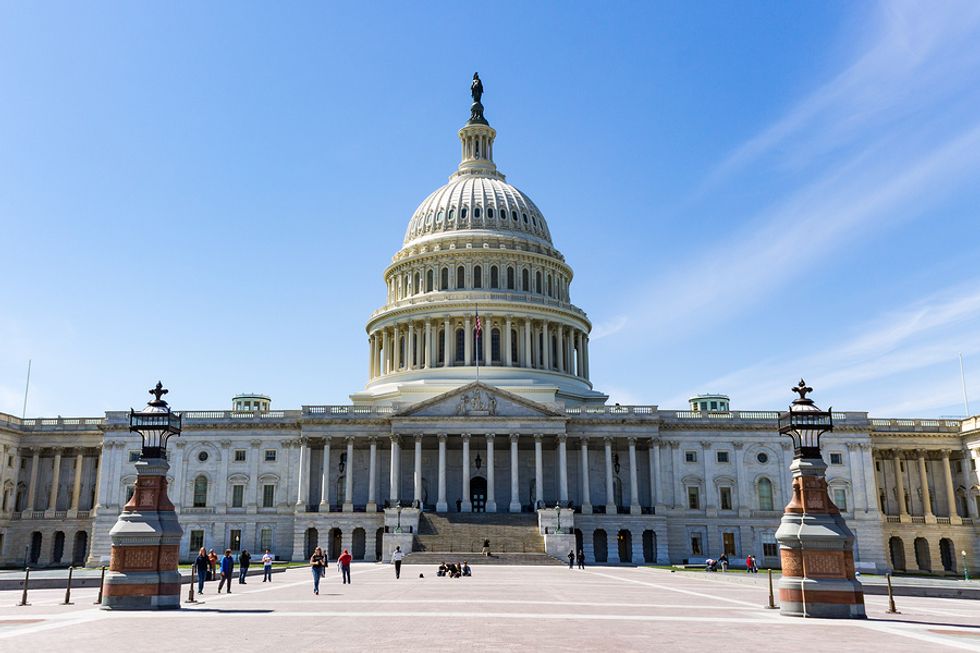
Minimum wage is currently a hot topic everywhere.
Nationally, there's ongoing debate about raising the federal minimum wage to $15 an hour by 2025, while at the state level many local governments are wrestling with their own minimum wage increase proposals as they keep an eye on things on the federal level. While allowing people the opportunity to earn more money seems like a good idea on the surface, some say it's not that simple.
The Effort To Raise Minimum Wage

Bigstock
The U.S. House of Representatives is gearing up to vote on a bill to gradually raise the federal minimum wage from $7.25 to $15 an hour by 2025. The bill has the support of companies like Amazon and Target, which have both committed to paying all of its workers at least $15, according to NPR.
Supporters say the increase is necessary because the wage hasn't been updated in a decade and needs to be changed to recognize the rate of inflation.
Currently, 29 states have a minimum wage greater than the federal limit, while 16 states equal it and five (Alabama, Louisiana, Mississippi, Tennessee, and South Carolina) don't have minimum wage. There are 18 states scheduled to make adjustments to their minimum wages in 2020.
The Pros And Cons Of Raising Minimum Wage

Bigstock
The U.S. Congressional Budget Office recently released a report about the effects of raising the federal minimum wage.
According to the report, raising the minimum wage to $15 by 2025 would increase the pay of at least 17 million people but could also put 1.3 million Americans out of work. The report notes that by paying the higher wages, it would reduce income to businesses and prices would then be passed on to consumers. In addition, business owners would have less money to give to their higher income employees and may even consider cutting employees and benefits because of the additional costs, according to the report.
The report notes that the positives of raising the minimum wage is that it gives lower wage workers more money to put back into the economy and may encourage students, who otherwise wouldn't work, to consider working some of these lower-paying jobs. In addition, the report estimates 1.3 million people whose income was below the poverty line would see the wage jump over that threshold.
The report also took into account smaller increases to the federal minimum wage. For example, a $12 an hour increase by 2025 would increase wages to five million workers and could result in a loss of 300,000 jobs, while an increase of $10 an hours would increase wages to 1.5 million workers and would have "little effect on employment," according to the report.
Economists from the Economic Policy Institute, a nonprofit think tank, have argued that a $15 minimum wage is necessary just to maintain an adequate standard of living. EPI Economist Ben Zipperer testified to Congress in February 2019 that other increases in minimum wages through the years have had little to no consequences. Zipperer also testified that the economy's capacity to deliver higher wages has doubled in the last 50 years, as measured by labor productivity, and had minimum wage actually kept up with that productivity, it would be more than $20 an hour today.
Why Should You Care About Minimum Wage?

Bigstock
Like with any political debate it's almost impossible to come to a consensus about whether raising the minimum wage would achieve its desired result. This issue may be easy to dismiss if you're working a job that pays a strong wage and you don't rely on the minimum wage. However, like anything that has an impact on the economy this debate is worth keeping an eye on.
The Economic Policy Institute says all taxpayers should take an interest in the minimum wage debate because an increase would lift more people out of poverty and reduce public assistance, which is subsidized by taxpayers.
If you're a business owner who utilizes the current federal minimum wage, you'll probably want to start financial projections of what a potential increase will mean to the business. While the federal projections of negative impacts are up for debate, not planning ahead for a change is bound to have some sort of consequences.
And for the average person not impacted by minimum wage?
Well, you may know someone who could greatly benefit from an increase. You could even benefit from it if it increases the hourly rate of your side hustle. And, you never know when a career challenge may force you to work a minimum wage job.
Whether it's positive or negative, any change in the minimum wage is bound to have some impact on both the local and national economy. The economy impacts us all, so we should all pay attention.
The effort to raise minimum wage is expected to gain the support of the U.S. Congress later this summers but could face some opposition in the U.S. Senate.
Ready for a career change? Work It Daily can help. Join today!
- Why Minimum Wage Is A Women's Issue | CAREEREALISM ›
- 3 Ways To Avoid A Minimum Wage Job After College - Work It Daily ›

 Bigstock
Bigstock Bigstock
Bigstock Bigstock
Bigstock


